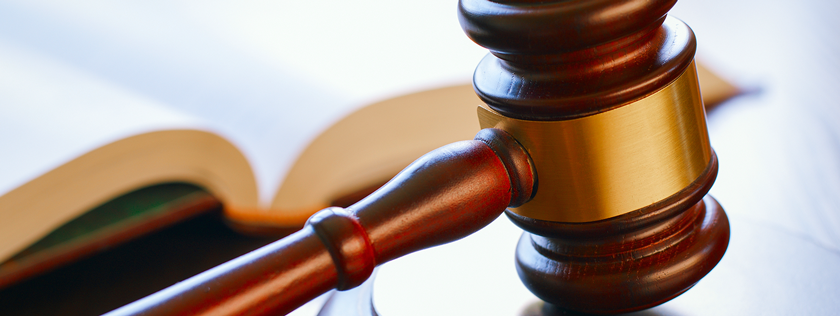You better watch out, you better take care….!

With the festive season now behind us, hopefully all work place celebrations went off without a hitch. Unfortunately, that was not the case in the celebrations which led to the claim in Bellman v Northampton Recruitment ([2016] EWHC 3104 (QB)). The decision in that case was issued last month and looks at to what extent an employer can be responsible for actions committed during the high jinks of a Christmas party.
The facts
A director and shareholder of the defendant company had hired the claimant as a sales manager. The director had arranged an office party at a local golf club. Although attendance at the party was not compulsory, all members of staff and their partners were invited and staff were expected to attend.
By way of background, shortly before this event, the director had hired a new sales manager and there were rumours circulating that he was being paid significantly more than other members of staff, including the claimant.
The party moved on to a nearby hotel where some members of staff were staying. The taxis to the hotel were paid for by the defendant company as was the accommodation costs and drinks consumed.
Neither the director nor the claimant was staying at the hotel but went there where the party goers continued drinking and eventually the conversation turned to future plans for the business. The claimant brought up the subject of the new sales manager’s appointment. The company director was not happy about this and summoned the remaining employees to the lobby area of the hotel, where he lectured them stating that he was the boss and was in charge; he made the decisions regarding appointments within the business; and that he was the one who paid their wages.
Pausing to consider the scope of vicarious liability, all the members of staff were there on a work night out, being paid for by the company. The company director was there in a work capacity, essentially the boss. He chose that moment to lecture staff on the business and his role within it. It seems clear that his actions and words flowed directly from his capacity within the company. If the director had chosen that moment to lecture his staff on the merits of his favourite football team, it might be argued that this did not directly relate to his role within the company, but he was talking about the business.
The claimant then began to challenge recent appointment of the sales director. If this discussion had taken place within a board room environment, there would be no question about whether this fell within the scope of employment for the purposes of vicarious liability.
In response, the director punched the claimant, who tried to diffuse the situation. Two employees tried to hold the director back, but he continued to assault the claimant who suffered a serious head injury as a result.
The claimant raised an action for damages against the defendant company, arguing that they were vicariously liable for the director’s actions.
The decision
The court held that the defendant company was not vicariously liable for the director’s actions for the following reasons:
- a distinction was made between the party at the golf club and the subsequent drinks at the hotel and the court held that the assault took place after the work event. The obligation on employees to attend had ended when the party finished. The incident took place at what could be described as ‘spontaneous’ after party drinks.
- during drinks at the hotel, the conversation was not limited to only work topics. If any discussion between employees regarding work was sufficient to give rise to liability, an employer’s liability would become too wide.
- The spontaneous drinks involved a drunken discussion that arose after those present had made a personal choice to consume more alcohol, long after the work event had ended. The fact that the conversation veered into a discussion about work was not enough to establish a sufficiently close connection to the director’s employment with the defendant company.
The decision draws a significant distinction between the party itself and the subsequent drinks event at the hotel. Perhaps if evidence had been led to establish whether it was normal practice to continue the party with drinks elsewhere, as is often the case with festive work parties, this might have helped to establish that the drinks were an extension of the party.
The decision in light of Mohamud?
Crucially, in Mohamud (Mohamud v WM Morrison Supermarkets Plc [2016] UKSC 11), the events were described by the Supreme Court as an ‘unbroken sequence of events’.
In the present case the presiding judge did not attach as much weight to the subject of the conversation as he did to the time and location at which the discussion took place and, as outlined above, in his view this took place at spontaneous after party drinks, which meant that there was a clear break in the chain from the organised Christmas party.
So despite that fact that the director’s ‘rant’ to employees was delivered in his capacity as the defendant company’s managing director; the taxis to the hotel, the hotel accommodation and the drinks there were all paid for by the defendant company; almost half of the people who were at the party went on for drinks afterwards; and the assault occurred during discussions about work, the court did not consider this sufficient to impose vicarious liability.
Essentially, there was not a sufficient connection between the assault and the director’s position within the defendant company to render the company liable and the fact that the assault occurred during a work-related discussion did not make a difference.
It appears that, in this instance, the judge was reluctant to cast the net of vicarious liability too widely for policy reasons, as to do so could leave many employers uninsurable.
Ashley Sturrock, Solicitor
Edinburgh Office